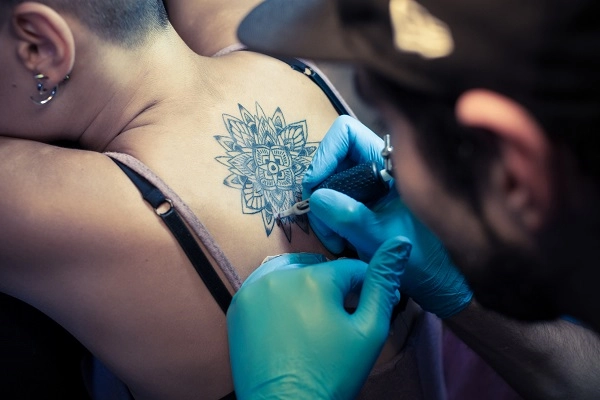13 tips for a healthier tattoo


This should not be news to you: Tattoos are made with needles, and every puncture in your skin is a potential source of infection. While most people get through the inking process without any issues, it’s a good idea to plan ahead in case something goes wrong. Here are 13 tips from Salem Health Convenient Care for a safer, healthier tattoo experience.
Before you go under the needle
-
Choose healthy skin. A tattoo can make it more difficult to see the earliest signs of skin cancer, so choose a location free of moles, scars or other skin issues.
-
Don’t tattoo yourself. Attempting this is a bad idea for many reasons, but one of the biggest is the risk to your health due to infection or reaction to unsanitary inks.
-
Look for a license. In Oregon, all tattoo artists are required to be licensed by the State Health Division. If you don’t see a license displayed in the tattoo shop, ask to see it.
-
Two words: clean and disposable. Oregon law is very specific about hygiene practices in tattoo parlors. In short, be suspicious of anything being reused. Razors, stencils, needles, gloves and ink dispensers should all be disinfected, discarded or replaced between customers.
Getting the tattoo
-
Eat something ahead of time. Depending on the size and complexity of your tattoo, a session may last several hours. Pain can feel magnified when you are hungry or dehydrated, so bring a healthy snack and a bottle of water with you.
-
Avoid medicines that thin the blood. While it is unlikely you would lose a dangerous amount of blood, excess bleeding will thin the ink and cause the session to take longer — more pain for you and more challenging for the artist. Talk to your artist if you are on a blood-thinning regimen for medical reasons. Many artists will work with you if you explain the situation and have a doctor’s note.
-
Don’t drink alcohol for 24 hours. Aside from impairing your judgment, it also thins the blood. In Oregon, it is illegal for an artist to tattoo someone who is intoxicated. Don’t waste your artist’s time by showing up drunk.
Caring for a new tattoo
Oregon law requires your tattoo artist to give you instructions for aftercare. However, these general tips should apply to everyone:
-
Keep the tattooed skin clean. Use plain soap and water and a gentle touch. While showering, avoid direct streams of water on the newly tattooed skin. Pat — don't rub — the area dry.
-
Use a water-based moisturizer. Petroleum-based ointments can fade some inks.
-
Avoid exposing the new tattoo to sun. If it’s in an area that can’t be covered up, use a waterproof sunscreen with an SPF of at least 30 (and reapply often).
-
Stay out of tanning beds and away from sunlamps. These devices may also fade the ink in tattoos and can increase your risk of skin cancer. In some people, the UV light may also react with the tattoo ink, causing a painful skin reaction.
-
Avoid swimming and baths. Stay out of pools, hot tubs, rivers, lakes and other bodies of water while your tattoo is healing.
-
Plan on at least two weeks of healing. Don't pick at any scabs or wear clothes that might stick to the raw skin — both increase the risk of infection and may damage the design and cause scarring.
Side effects to watch out for
Allergic reactions. One of the most common problems associated with tattooing is allergic reactions to the tattoo pigments. An itchy rash, blisters, burning sensation or swelling are all signs of allergic reactions. Medication or other treatment might be needed if you experience an allergic reaction to the tattoo ink.
Bacterial infections. Just like any open wound, a fresh tattoo may get infected if you don’t keep it clean and covered.
Other skin problems. Sometimes bumps called granulomas form around tattoo ink. In people with psoriasis and eczema, tattoos may cause the chronic skin conditions to flare.
Contact your doctor or make an appointment at Convenient Care if you suspect you have any of the conditions above. The sooner you get help, the better your chance of healing cleanly without scars.